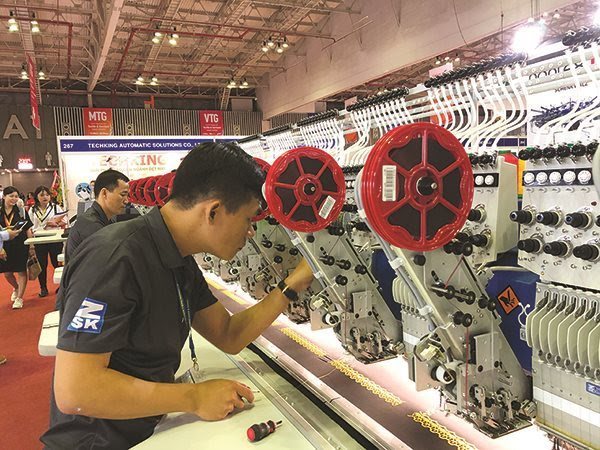HANOI – The European Union-Vietnam Free Trade Agreement’s (EVFTA) rules of origin requirement will be a major challenge for Vietnam to overcome, the World Bank stated in a new report.
According to the report “Deepening International Integration and Implementing the EVFTA” released on May 19, even if a product is produced in Vietnam, EU importers might not consider it Vietnamese if it has a high dependence on imported materials.
The report stated that in key export manufacturing industries, most input materials are sourced from foreign countries. For instance, 62% and 53% of input materials in the electronics and automotive sectors, respectively, come from other countries. The report called for greater efforts to improve links between domestic suppliers and foreign enterprises as lead firms in major global value chains.
At the same time, rigorous European food safety standards make it important for Vietnam to improve the clarity and consistency of its sanitary measures. By one estimate, the cost of full compliance with existing nontariff measures in Vietnam is equivalent to a 16.6% tariff, compared with a regional average of 5.4%.
The report estimated that by utilizing the agreed upon tariff reduction in the EVFTA, Vietnam’s gross domestic product (GDP) and exports could rise by 2.4% and 12%, respectively, by 2030, while lifting an additional 100,000-800,000 people out of poverty by 2030. These benefits are particularly urgent to lock in positive economic gains as the country responds to the Covid-19 pandemic.
The country could benefit even more from next-generation trade deals such as the EVFTA and Comprehensive and Progressive Agreement for Trans-Pacific Partnership if it stimulates a comprehensive agenda of economic and institutional reforms to facilitate compliance with nontariff agreements. These reforms would result in a productivity kick, increasing the GDP by 6.8%, relative to the baseline scenario, by 2030.
The report highlighted the need for Vietnam to increase capacity to handle certain major issues, including rules of origin, animal and plant sanitary standards and investor-state dispute settlement.
“If Vietnam can act in a decisive manner to close legal and implementation capacity gaps, it can capitalize on a trade deal whose direct benefits are estimated to be largest in the country’s history. With Covid-19 acting as a reset button and EVFTA as an accelerator, now is the perfect time to embrace deeper domestic reforms,” said Ousmane Dione, World Bank country director for Vietnam.
The introduction of the EVFTA is expected to bring more investors to Vietnam both from Europe and from the rest of the world. As the flow of foreign investment increases, so will the number of commercial grievances. The report called for the accelerated development of a systemic investment response system to settle disputes between investors and the State.
The report also made a case for prioritizing major sectors that make up the bulk of Vietnamese exports to the European market as part of Covid-19 economic recovery efforts to maximize the benefits of the trade pact.
By Thuy Dung









